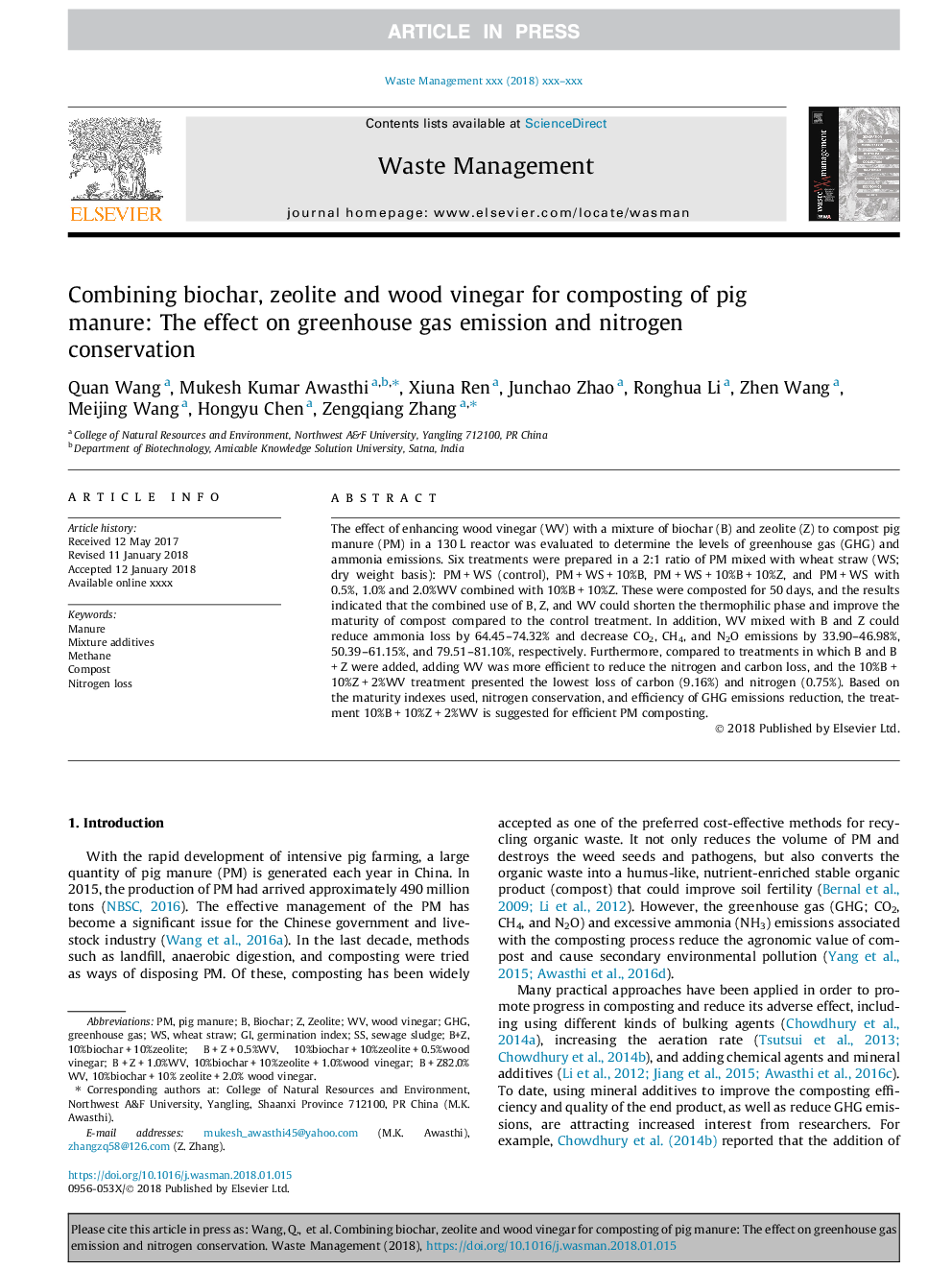| Article ID | Journal | Published Year | Pages | File Type |
|---|---|---|---|---|
| 8870033 | Waste Management | 2018 | 10 Pages |
Abstract
The effect of enhancing wood vinegar (WV) with a mixture of biochar (B) and zeolite (Z) to compost pig manure (PM) in a 130â¯L reactor was evaluated to determine the levels of greenhouse gas (GHG) and ammonia emissions. Six treatments were prepared in a 2:1 ratio of PM mixed with wheat straw (WS; dry weight basis): PMâ¯+â¯WS (control), PMâ¯+â¯WSâ¯+â¯10%B, PMâ¯+â¯WSâ¯+â¯10%Bâ¯+â¯10%Z, and PMâ¯+â¯WS with 0.5%, 1.0% and 2.0%WV combined with 10%Bâ¯+â¯10%Z. These were composted for 50â¯days, and the results indicated that the combined use of B, Z, and WV could shorten the thermophilic phase and improve the maturity of compost compared to the control treatment. In addition, WV mixed with B and Z could reduce ammonia loss by 64.45-74.32% and decrease CO2, CH4, and N2O emissions by 33.90-46.98%, 50.39-61.15%, and 79.51-81.10%, respectively. Furthermore, compared to treatments in which B and Bâ¯+â¯Z were added, adding WV was more efficient to reduce the nitrogen and carbon loss, and the 10%Bâ¯+â¯10%Zâ¯+â¯2%WV treatment presented the lowest loss of carbon (9.16%) and nitrogen (0.75%). Based on the maturity indexes used, nitrogen conservation, and efficiency of GHG emissions reduction, the treatment 10%Bâ¯+â¯10%Zâ¯+â¯2%WV is suggested for efficient PM composting.
Keywords
Related Topics
Physical Sciences and Engineering
Earth and Planetary Sciences
Geotechnical Engineering and Engineering Geology
Authors
Quan Wang, Mukesh Kumar Awasthi, Xiuna Ren, Junchao Zhao, Ronghua Li, Zhen Wang, Meijing Wang, Hongyu Chen, Zengqiang Zhang,
